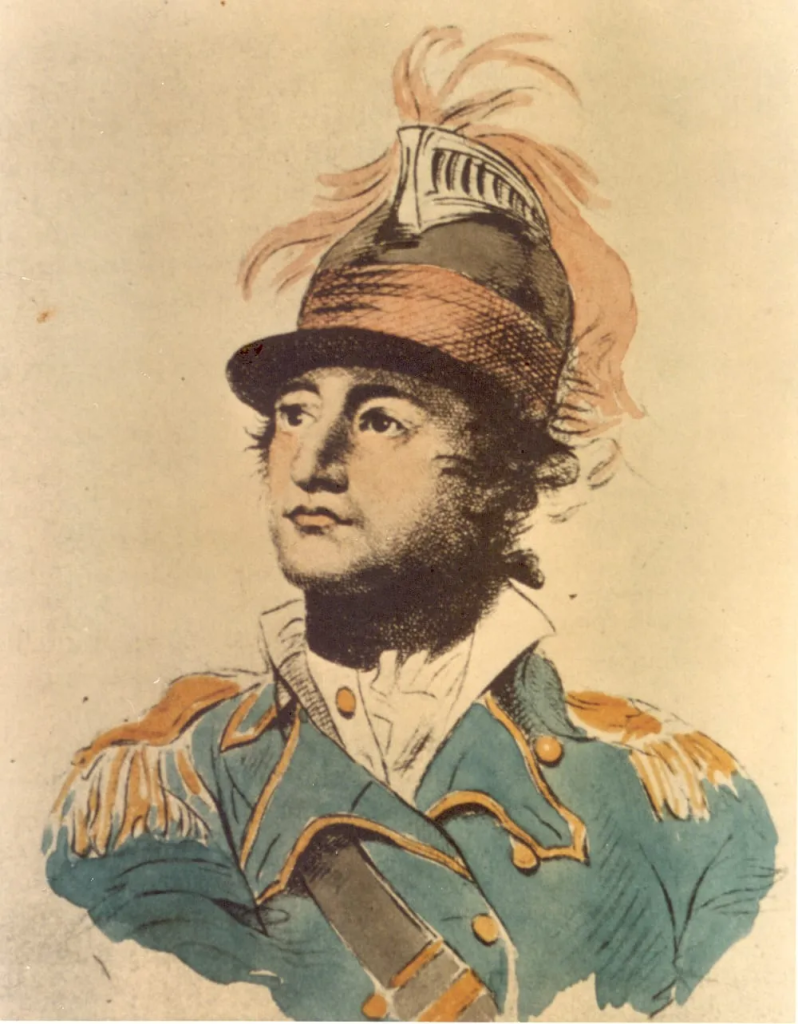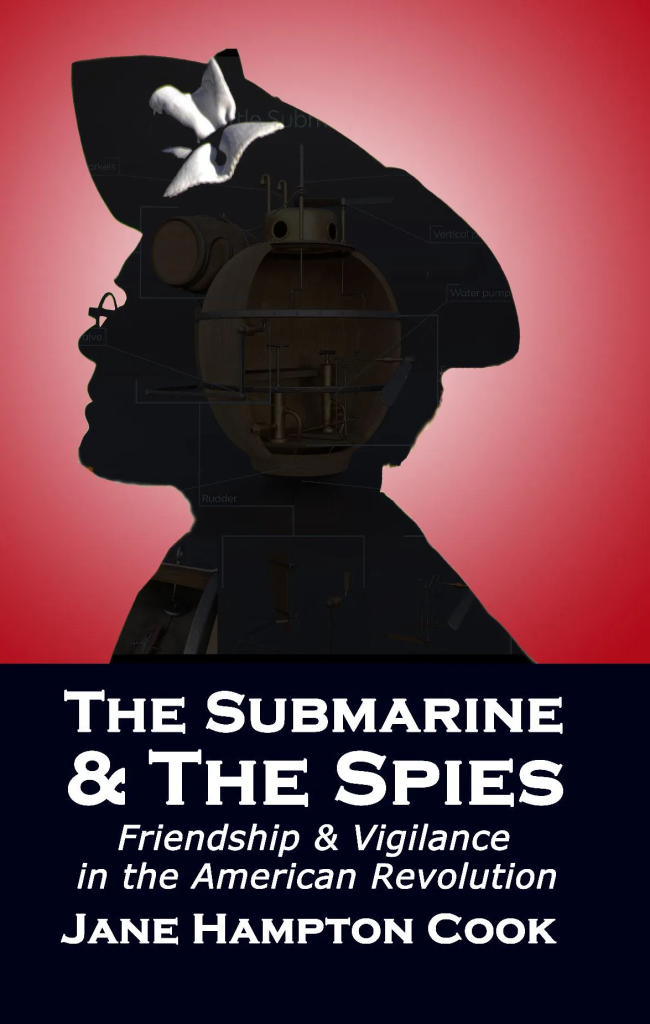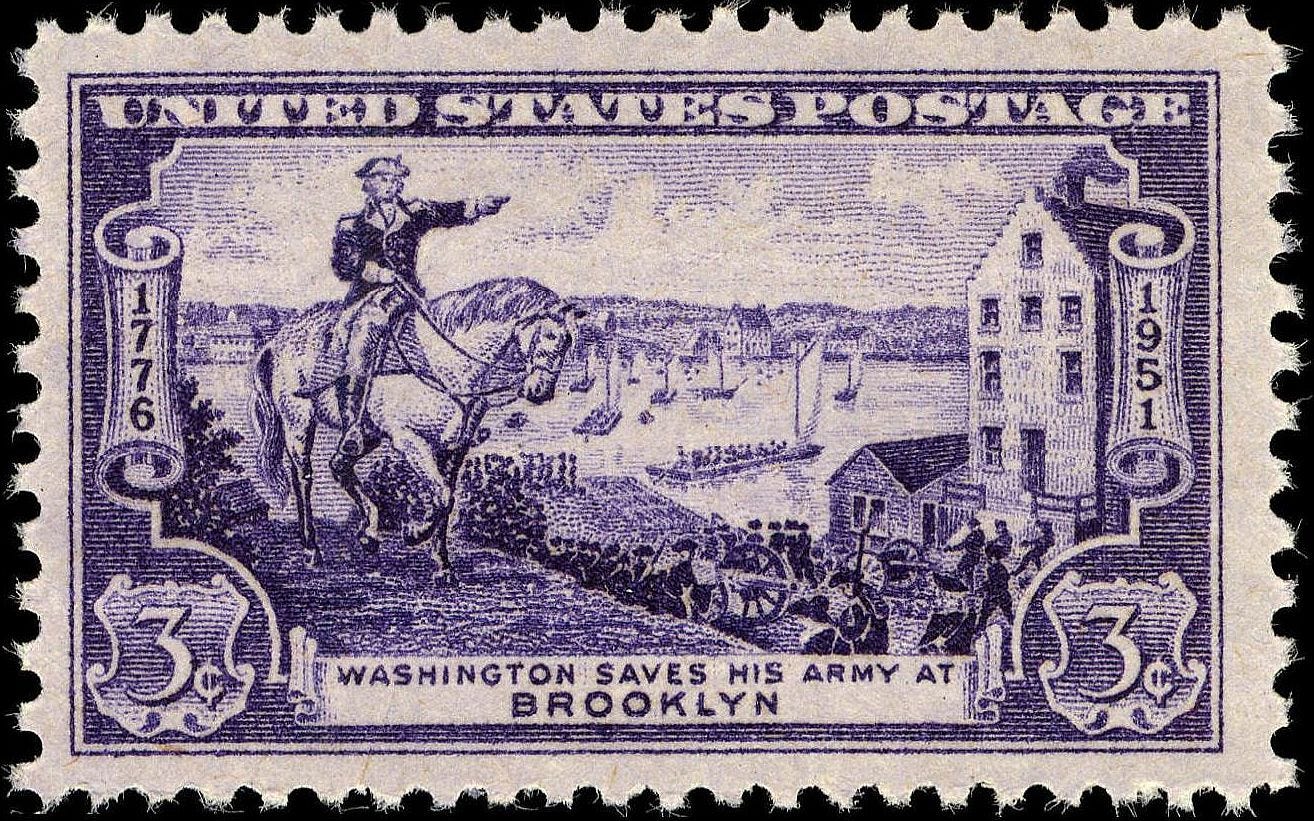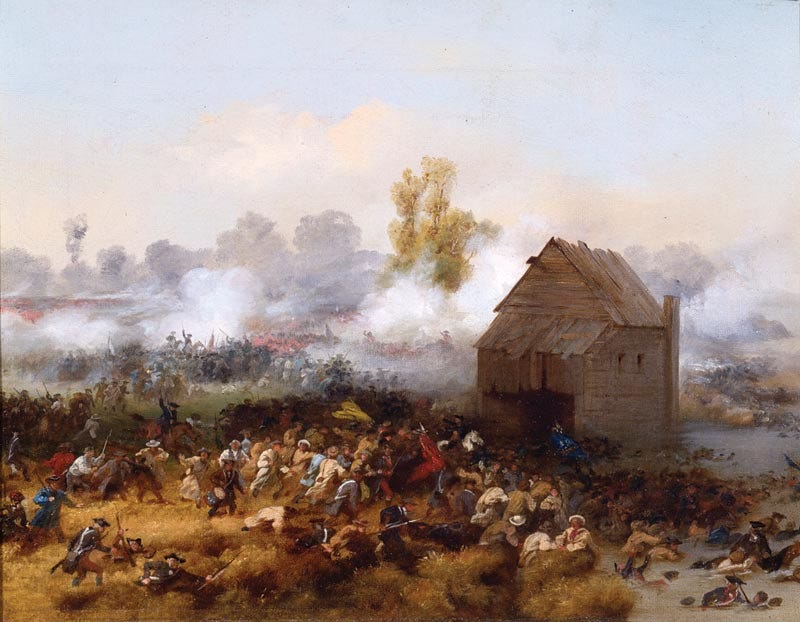
Please Follow us on Gab, Minds, Telegram, Rumble, Gettr, Truth Social, Twitter
Today is the 247th anniversary of the mysterious, Providential fog that covered the evacuation of the Continental Army from Long Island to Manhattan in 1776. The term Providence was very common in this era. The president of Princeton College, John Witherspoon, defined Providence as the operation of God’s presence. After the evacuation on August 29, 1776, one soldier sent a report to a Boston newspaper that said: “Providence favored us. The night was remarkably still. The water as smooth as glass, so that our boats got all over. At sunrise a great fog came up. The enemy did not discover that we had evacuated our lines until we were all over.”
Also referring to the fog as providential was Benjamin Tallmadge, who was on one of the last boats to depart the Brooklyn Ferry from Long Island to Manhattan that night. Tallmadge is one of the main characters in my book The Submarine and the Spies. If the British had been able to get their ships in the East River that night, they would have cut off the Army and sealed the Continental Army in on both sides.

Here is Benjamin Tallmadge's recollection of what happened from his memoir. Tallmadge later became George Washington’s spymaster.
“The Declaration of Independence, which had been solemnly adopted by Congress on the Fourth of July, 1776, was announced to the army in general orders, and filled every one with enthusiastic zeal, as the point was now forever settled, and there was no further hope of reconciliation and dependence on the mother country."
“The movements of the enemy indicating an intention to approach New York by the way of Long Island, Gen. Washington ordered about 10,000 men to embark and cross the East River at Brooklyn. The regiment to which I belonged was among the first that crossed over, and, on the 27th of August, the whole British army, consisting of their own native troops, Hessians, Brunswickers, Waldeckers, etc., to the number of at least 25,000 men, with a most formidable train of field artillery, landed near Flatbush, under cover of their shipping, and moved towards Jamaica and Brooklyn."

“As our troops had advanced to meet the enemy, the action soon commenced, and was continued, at intervals, through most of the day. Before such an overwhelming force of disciplined troops, our small band could not maintain their ground, and the main body retired within their lines at Brooklyn, while a body of Long Island Militia, under Gen. Woodhull, took their stand at Jamaica. Here Gen. Woodhull was taken prisoner and inhumanly killed. The main body of our army, under Major Gen. Sullivan and Lord Stirling, fought in detached bodies, and on the retreat both of those officers were made prisoners."
“I also lost a brother the same day, who fell into their hands, and was afterwards literally starved to death in one of their prisons; nor would the enemy suffer relief from his friends to be afforded to him."
“This was the first time in my life that I had witnessed the awful scene of a battle, when man was engaged to destroy his fellow man. I well remember my sensations on the occasion, for they were solemn beyond description, and very hardly could I bring my mind to be willing to attempt the life of a fellow creature."
“Our army having retired behind their entrenchment, which extended from Vanbrunt’s Mills, on the West, to the East River, flanked occasionally by redoubts, the British army took their position, in full array, directly in front of our position. Our entrenchment was so weak, that it is most wonderful the British General did not attempt to storm it soon after the battle, in which his troops had been victorious."
“Gen. Washington was so fully aware of the perilous situation of this division of his army, that he immediately convened a council of war, at which the propriety of retiring to New York was decided on. After sustaining incessant fatigue and constant watchfulness for two days and nights, attended by heavy rain, exposed every moment to an attack from a vastly superior force in front, and to be cut off from the possibility of retreat to New York by the fleet, which might enter the East River, on the night of the 29th of August, Gen. Washington commenced recrossing his troops from Brooklyn to New York."

“To move so large a body of troops, with all their necessary appendages, across a river full a mile wide, with a rapid current, in face of a victorious, well-disciplined army, nearly three times as numerous as his own, and a fleet capable of stopping the navigation, so that not one boat could have passed over, seemed to present most formidable obstacles. But, in face of these difficulties, the Commander-in-Chief so arranged his business, that on the evening of the 29th, by 10 o'clock, the troops began to retire from the lines in such a manner that no chasm was made in the lines, but as one regiment left their station on guard, the remaining troops moved to the right and left and filled up the vacancies, while Gen. Washington took his station at the ferry, and superintended the embarkation of the troops."
“It was one of the most anxious, busy nights that I ever recollect, and being the third in which hardly any of us had closed our eyes to sleep, we were all greatly fatigued. As the dawn of the next day approached, those of us who remained in the trenches became very anxious for our own safety, and when the dawn appeared there were several regiments still on duty. At this time a very dense fog began to rise, and it seemed to settle in a peculiar manner over both encampments."
“I recollect this peculiar providential occurrence perfectly well; and so very dense was the atmosphere that I could scarcely discern a man at six yards' distance."

“When the sun rose we had just received orders to leave the lines, but before we reached the ferry, the Commander-in-Chief sent one of his aids to order the regiment to repair again to their former station on the lines. Col. Chester immediately faced to the right about and returned, where we tarried until the sun had risen, but the fog remained as dense as ever. Finally, the second order arrived for the regiment to retire, and we very joyfully bid those trenches a long adieu."
“When we reached Brooklyn ferry, the boats had not returned from their last trip, but they very soon appeared and took the whole regiment over to New York; and I think I saw Gen. Washington on the ferry stairs when I stepped into one of the last boats that received the troops."
“I left my horse tied to a post at the ferry. The troops having now all safely reached New York, and the fog continuing as thick as ever, I began to think of my favorite horse, and requested leave to return and bring him off. Having obtained permission, I called for a crew of volunteers to go with me, and guiding the boat myself, I obtained my horse and got off some distance into the river before the enemy appeared in Brooklyn. As soon as they reached the ferry we were saluted merrily from their musketry, and finally by their field pieces; but we returned in safety."
“In the history of warfare, do not recollect a more fortunate retreat."
"After all, the providential appearance of the fog saved a part of our army from being captured, and certainly myself, among others who formed the rear guard. Gen. Washington has never received the credit which was due to him for this wise and most fortunate measure.”

History has always been in my blood as my ancestors before Declaration of Independence was created the Mann family was part of the patriotic revolution that my grandmother traced in the ‘40’s. She forgot to inform us of the religion our ancestors had in Germany before emigrating. Genealogy is very hard to trace because same names used for each generation. The fog was Providence along with work that our best diplomat obtained in France my fraternal ancestors with William the Conqueror to UK